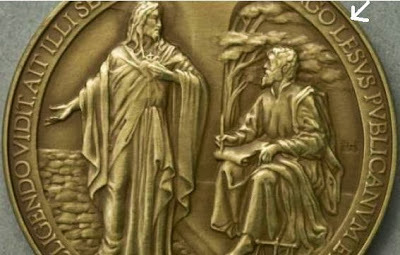Arsen Darnay's Blog, page 41
October 19, 2013
The Almost-Shadow Moon Eclipse
It happened only yesternight.Earth’s shadow touched the moon a bit,The earth quite unaware of it, Just turning, turning left to right.
Penumblar is the word we useTo name a partial moon eclipse.It starts on top and then it dips.It travels but it doesn’t bruise
The bright-lit surface of the moonAt all but merely looks as ifThe lanteen of a distant skiffHad briefly shaded silver dunes.
Who watched? We did, but we saw naught.Our global angle wasn’t rightAlthough the Hunter’s moon was bright, So round! So who can be distraught?
Penumblar is the word we useTo name a partial moon eclipse.It starts on top and then it dips.It travels but it doesn’t bruise
The bright-lit surface of the moonAt all but merely looks as ifThe lanteen of a distant skiffHad briefly shaded silver dunes.
Who watched? We did, but we saw naught.Our global angle wasn’t rightAlthough the Hunter’s moon was bright, So round! So who can be distraught?
Published on October 19, 2013 07:46
October 18, 2013
Foresight
We are still far too close to animal behavior. The time horizon of most animals is very short, a matter of a few seconds—although I note that squirrels start their winter preparations about two months before hard frosts really take hold; and migratory species take off with plenty of time to reach very distant winter nesting sites.
Back when I followed trends in technology and economics, I once carefully noted that the oil sector had a 10- to 15-year planning cycle caused by the effective life of its major capital investments. By contrast Retail had a 3-month cycle aimed at seasonal shopping events. Public companies look ahead three months as well owing to quarterly reporting; those reports cause their stock to fall or rise. In politics the cycle is two years at best—but effectively genuine attention to business dissipates after a single year because it takes members of Congress at least a year to get re-elected.
The larger and more complex something is the longer it takes for it to change. In a book on supertankers I had read long ago how long it takes a big ship to change course. It’s a major, coordinated operation rather than, as in a boat, a mere movement of the arm.
Our time horizons blinker or open our foresight. Individuals should look ahead a lifetime—say a hundred years to be safe; the near-term ought to be ten years. As for collectives, they should at least match individuals and, better yet, look two centuries ahead. A three-month delay of a decision on how to finance the governance of a fairly large realm like ours would make a squirrel proud, perhaps, but not Homo obfuscatus.
Back when I followed trends in technology and economics, I once carefully noted that the oil sector had a 10- to 15-year planning cycle caused by the effective life of its major capital investments. By contrast Retail had a 3-month cycle aimed at seasonal shopping events. Public companies look ahead three months as well owing to quarterly reporting; those reports cause their stock to fall or rise. In politics the cycle is two years at best—but effectively genuine attention to business dissipates after a single year because it takes members of Congress at least a year to get re-elected.
The larger and more complex something is the longer it takes for it to change. In a book on supertankers I had read long ago how long it takes a big ship to change course. It’s a major, coordinated operation rather than, as in a boat, a mere movement of the arm.
Our time horizons blinker or open our foresight. Individuals should look ahead a lifetime—say a hundred years to be safe; the near-term ought to be ten years. As for collectives, they should at least match individuals and, better yet, look two centuries ahead. A three-month delay of a decision on how to finance the governance of a fairly large realm like ours would make a squirrel proud, perhaps, but not Homo obfuscatus.
Published on October 18, 2013 09:10
October 17, 2013
Brief Resume of Broad
Let us briefly look at the career of a Man born of wealthy and powerful parents. He was born just four years before what might be called the Great War of his time began. That war lasted some 27 years, and our Man was just 23 years of age when it finally ended. His country had lost the war—and the victorious enemy established an Oligarchy to rule the country; some members of this Oligarchy were relatives of the Man. They invited him to join their activities and thus make his career, but our Man had literary, artistic leanings and preferred to write poetry and plays. The Oligarchy didn’t last very long—just a year. In that time, however, it managed to arrest and to try one of the country’s most famous intellectuals and teachers—for that man’s failure to participate in the abduction and killing of one of their opponents. The Intellectual barely escaped execution; luckily for him the Oligarchy was overthrown just before it could do him in. Some five years later, however, the Intellectual was tried again, this time for corrupting the youth of his country, and put to death. Those were turbulent times.
Our Man, 28 at that time, had been a great admirer of the Intellectual. The teacher’s death disgusted him—and he left the country to go on travels. He spent time all over the place, associating with other intellectuals. His travels took him to neighboring countries as well as to distant, but long-established colonies of his region. He spent nearly twenty years in such travels and studies. Then, having come to a decision, he returned to his country at age 51 and there founded a school and legislative consultancy to propagate the teachings of the much admired late Intellectual.
An interesting event, just before the founding of the School, but poorly documented in the life of our Man, was that, just before founding his School, he had been engaged as a consultant to a tyrannical ruler of one of his region’s one-time colonies; let’s call that place Sy. His attempts at persuading the Tyrant to rule by laws, rather than force, got him sold into slavery—but an admirer of his purchased his freedom and got him back to the capital of his country again.
Despite having founded his School, our Man twice more visited Sy later—after the Tyrant had been deposed—but his efforts to institute wise rule failed every time. Eventually, back at the School again, he devoted himself to philosophical writings and died peacefully at age 80 in his bed.
So who exactly was this man? His nickname, in the language of his own country, was Broad or Wide—either because his forehead was prominent or because a wrestling coach of his admired the width of his shoulders. Let me give that word in his own language, it was Plato. His actual name, given to him by his parents, was Aristocles. No, not a mistyping. Aristotle was someone else; in fact he was Plato’s most famous pupil…
* * *
The motivation for this post? It is my conviction that we tend to abbreviate, caricature, emblemize, and iconize the past. The past was just as complicated, confusing, and nitty-gritty-filled as any present ever is.
Our Man, 28 at that time, had been a great admirer of the Intellectual. The teacher’s death disgusted him—and he left the country to go on travels. He spent time all over the place, associating with other intellectuals. His travels took him to neighboring countries as well as to distant, but long-established colonies of his region. He spent nearly twenty years in such travels and studies. Then, having come to a decision, he returned to his country at age 51 and there founded a school and legislative consultancy to propagate the teachings of the much admired late Intellectual.
An interesting event, just before the founding of the School, but poorly documented in the life of our Man, was that, just before founding his School, he had been engaged as a consultant to a tyrannical ruler of one of his region’s one-time colonies; let’s call that place Sy. His attempts at persuading the Tyrant to rule by laws, rather than force, got him sold into slavery—but an admirer of his purchased his freedom and got him back to the capital of his country again.
Despite having founded his School, our Man twice more visited Sy later—after the Tyrant had been deposed—but his efforts to institute wise rule failed every time. Eventually, back at the School again, he devoted himself to philosophical writings and died peacefully at age 80 in his bed.
So who exactly was this man? His nickname, in the language of his own country, was Broad or Wide—either because his forehead was prominent or because a wrestling coach of his admired the width of his shoulders. Let me give that word in his own language, it was Plato. His actual name, given to him by his parents, was Aristocles. No, not a mistyping. Aristotle was someone else; in fact he was Plato’s most famous pupil…
* * *
The motivation for this post? It is my conviction that we tend to abbreviate, caricature, emblemize, and iconize the past. The past was just as complicated, confusing, and nitty-gritty-filled as any present ever is.
Published on October 17, 2013 09:23
October 16, 2013
Prime Minister Boehner
Suppose that we were a parliamentary democracy. In such a system the chief executive would be the person who controls the House of Representatives. Now it so happens that our current House, in the 113th Congress, as of September of last year, was composed of three parties: the Tea Party, with 48 members, the Republican Party, with 184, and the Democrats, with 200. Looked at in this way, the Democrats are in the majority. After the elections, which produced this result, Nancy Pelosi would have had to form a coalition government. She would have opted for what in Europe they call a Grand Coalition, thus one formed of the two largest parties. Moderate and mainstream Republicans would have been much more acceptable to Pelosi than a lash-up with tea drinkers. The government would have been generally moderate, but in such a situation as prevails today, shutdown and fiscal cliff, the outcome would have been sensible, let us say.
Our current “prime minister” opted for a coalition that isn’t working well at all, thanks to the Hastert Rule under which no legislation is offered for a vote unless the majority of the majority, in this case the Republicans and Tea Party combined, are certain to win the vote. With the Tea Party adamantly opposed to a sensible solution, namely let’s have an operating government and funding for it before we tackle issues of a lesser magnitude, doing the sensible thing threatens Boehner’s role as the de facto PM. If he allows a vote, the sensible solution will pass—but Boehner may not be able to hold on to his job.
Is one man holding up the show? Looks like it to me. The Senate laboring valiantly on a deal suggests an odd situation. I have a terrible case of indigestion—and Brigitte is doing her best to help by taking Alka-Seltzer.
Our current “prime minister” opted for a coalition that isn’t working well at all, thanks to the Hastert Rule under which no legislation is offered for a vote unless the majority of the majority, in this case the Republicans and Tea Party combined, are certain to win the vote. With the Tea Party adamantly opposed to a sensible solution, namely let’s have an operating government and funding for it before we tackle issues of a lesser magnitude, doing the sensible thing threatens Boehner’s role as the de facto PM. If he allows a vote, the sensible solution will pass—but Boehner may not be able to hold on to his job.
Is one man holding up the show? Looks like it to me. The Senate laboring valiantly on a deal suggests an odd situation. I have a terrible case of indigestion—and Brigitte is doing her best to help by taking Alka-Seltzer.
Published on October 16, 2013 08:08
October 14, 2013
Publishers Will Understand
The German newsmagazine, Spiegel, first published the story. The official coin commemorating Pope Francis’ pontificate went on the market with the name of Jesus misspelled as Lesus. The coins were immediately withdrawn, but four had already been sold.
I first heard about this story from Brigitte. She’d seen it as a snippet without an illustration. When I asked her if the L in question had been lower- or upper-case, she did not know. I asked that question because the Roman alphabet did not (indeed still doesn’t) have a J. Rome’s first would-be-emperor was Iulius Caesar; he came from the Iulia family. If the name of Jesus were rendered in the Latin alphabet, we would have Iesus, and the accidental substitution of an l for a I might be understandable. Alas. Herewith the picture:

As the picture shows, the L used was a capital. Ordinary people laugh at this sort of thing, but if you lived in the tribe of publishers long enough, stories like this make your hair stand on end, sweat breaks from your brow, and color drains from your face. My own horrific memory of a failure of effective proofing came when a massive reference book I was responsible for, of a geographical type, omitted the entire segment on the state of Texas. Word came well after the book had reached its public when a Texas librarian notified us—indeed in very kind words. And she ended her letter by saying: “Don’t mess with Texas.”
Reprinting then, restamping in the Vatican now. But it would be very nice indeed to own one of the four coins with Lesus at two o’clock.
I first heard about this story from Brigitte. She’d seen it as a snippet without an illustration. When I asked her if the L in question had been lower- or upper-case, she did not know. I asked that question because the Roman alphabet did not (indeed still doesn’t) have a J. Rome’s first would-be-emperor was Iulius Caesar; he came from the Iulia family. If the name of Jesus were rendered in the Latin alphabet, we would have Iesus, and the accidental substitution of an l for a I might be understandable. Alas. Herewith the picture:

As the picture shows, the L used was a capital. Ordinary people laugh at this sort of thing, but if you lived in the tribe of publishers long enough, stories like this make your hair stand on end, sweat breaks from your brow, and color drains from your face. My own horrific memory of a failure of effective proofing came when a massive reference book I was responsible for, of a geographical type, omitted the entire segment on the state of Texas. Word came well after the book had reached its public when a Texas librarian notified us—indeed in very kind words. And she ended her letter by saying: “Don’t mess with Texas.”
Reprinting then, restamping in the Vatican now. But it would be very nice indeed to own one of the four coins with Lesus at two o’clock.
Published on October 14, 2013 08:29
October 11, 2013
The Rites of Fall
No composer, to my knowledge, has ever taken up the challenge to write a ballet on the Rites of Fall. We might call the activities that fall under this heading preparation for a kind of human hibernation, which is what the coming season really is. Quite chilly temperatures this morning triggered the response in me. Soon now, I thought, the plants must be brought in. Now our plants over-winter mostly in our basement. The place turns into a kind of surreal ballet set for jade plants and such; our furnace, which provides the music, was already tuning up for performances to come. We have a dozen jade plants, perhaps even a score of them. A large table under two neon lights is their principal residence, but overflow has caused, in recent years, the need to house some of them on my workbench too—a place or venue that tends to become quite chaotic, with the residues of past projects carelessly shoved aside. So it is there that I began—making order for the coming lock-down—and herewith the result:
 Amazing what one discovers in such ventures—not least totally dried out jade plant leaves from last year’s hibernation cycle. So many nuts, bolts, and hanger things—so many little bags of plastic holding extra screws and thingies from some project reflexively stored. A faucet washer paradise my bench—because to buy one that fits the faucet, one must buy a dozen others that don’t fit anything in the house. But do not throw anything away. Who knows when it will come in handy. The answer to that question is a definition of eternity.
Amazing what one discovers in such ventures—not least totally dried out jade plant leaves from last year’s hibernation cycle. So many nuts, bolts, and hanger things—so many little bags of plastic holding extra screws and thingies from some project reflexively stored. A faucet washer paradise my bench—because to buy one that fits the faucet, one must buy a dozen others that don’t fit anything in the house. But do not throw anything away. Who knows when it will come in handy. The answer to that question is a definition of eternity.
Little things never to be thrown away? Well, one of these is a plastic button proclaiming that I ♥ Gale. Another even older one that fell into my hand when I unpended a tiny container cap, used as storage, was a McGovern MMM button. “I belong,” the button says, “McGovern, MMM.” It goes on to spell out those three Ms. McGovern Million-Member Club. And then the buttons asks: “How About You?”
Another valuable discovery for me today has been to learn the legacy of those tall, slender spice bottles that hold marjoram and ginger and such. The best and brightest achieve immortality by holding, forever, long screws or threaded bolts I’lll probably never need. But you never know.
 Amazing what one discovers in such ventures—not least totally dried out jade plant leaves from last year’s hibernation cycle. So many nuts, bolts, and hanger things—so many little bags of plastic holding extra screws and thingies from some project reflexively stored. A faucet washer paradise my bench—because to buy one that fits the faucet, one must buy a dozen others that don’t fit anything in the house. But do not throw anything away. Who knows when it will come in handy. The answer to that question is a definition of eternity.
Amazing what one discovers in such ventures—not least totally dried out jade plant leaves from last year’s hibernation cycle. So many nuts, bolts, and hanger things—so many little bags of plastic holding extra screws and thingies from some project reflexively stored. A faucet washer paradise my bench—because to buy one that fits the faucet, one must buy a dozen others that don’t fit anything in the house. But do not throw anything away. Who knows when it will come in handy. The answer to that question is a definition of eternity. Little things never to be thrown away? Well, one of these is a plastic button proclaiming that I ♥ Gale. Another even older one that fell into my hand when I unpended a tiny container cap, used as storage, was a McGovern MMM button. “I belong,” the button says, “McGovern, MMM.” It goes on to spell out those three Ms. McGovern Million-Member Club. And then the buttons asks: “How About You?”
Another valuable discovery for me today has been to learn the legacy of those tall, slender spice bottles that hold marjoram and ginger and such. The best and brightest achieve immortality by holding, forever, long screws or threaded bolts I’lll probably never need. But you never know.
Published on October 11, 2013 09:25
October 10, 2013
Why It’s Called Milkweed
The Milkweed is, as readers of this blog must know, the favorite breeding ground of the Monarch butterfly. We aspire to raise the Monarch, hence our interest in milkweed. We bought our first specimen in a pot (reported
here
last July); the plant was not yet feeling at home and the Fall brought no changes at all, even after replanting. This year has been different. I show
here
the first budding of its flowers,
here
the flower opened and the earliest pods that the milkweed produces.
After returning from our mini-vacation, Brigitte came running from her first inspection of our garden. Our milkweed pods had aged enough, dried out enough, and they had opened! We got home just in time. Herewith a sequence of pictures, all taken this morning—showing late-arising pods, pods not yet opened, and two pictures of the finished product displaying their seeds. They’re ready to open their wings to the next good wind. Those seeds are quite startling—and tells us why this plant, essentially green-on-green all of the Spring and Summer, is called the milkweed.




The third picture shows in some detail the orderly arrangement of the seeds after the pod opens, the fine white bundles of soft hair that will act to transport them by air, and the dried-out outer covering of the pods, still light or dark-green in the photos above. The last picture, using a different angle, highlights the dominant color of this end-stage: milk-white.
After returning from our mini-vacation, Brigitte came running from her first inspection of our garden. Our milkweed pods had aged enough, dried out enough, and they had opened! We got home just in time. Herewith a sequence of pictures, all taken this morning—showing late-arising pods, pods not yet opened, and two pictures of the finished product displaying their seeds. They’re ready to open their wings to the next good wind. Those seeds are quite startling—and tells us why this plant, essentially green-on-green all of the Spring and Summer, is called the milkweed.




The third picture shows in some detail the orderly arrangement of the seeds after the pod opens, the fine white bundles of soft hair that will act to transport them by air, and the dried-out outer covering of the pods, still light or dark-green in the photos above. The last picture, using a different angle, highlights the dominant color of this end-stage: milk-white.
Published on October 10, 2013 08:47
Symbol Cleansing
Symbol cleansing, which is a more or less harmless public activity—harmless because it does not produce huge refugee camps and deaths—is temporarily on the upswing. The Washington Redskins are coming under pressure to give their team a politically less offensive name. Not Braves, surely, which is another way to refer to once war-like traits of what? Native North Americans? This landmass had other names back then, therefore “American” may have a faint smell too—as might Indigenous North Americans. We should settle on the Washington Helmets—if that word were not so “defensive”; and Washington Aggressors might be troublesome too—because it used to be, in my Army days, the euphemistic reference to Russians.
This coming Sunday the Redskins face the Cowboys. The number of cowboys in the population presently is not particularly large—or else a lobby would be formed to get rid of “boys,” substituting Cowmen and Cowwomen—unless the U.S. Livestock Association takes umbrage at the use of “cow” or some really wild macho group demands that “bull” be added to the Dallas team’s name, as in the Dallas Bullmen.
It helps when the symbol chosen has no active constituency. Also on the field next Sunday will be the Denver Broncos facing the Jacksonville Jaguars. The earth today has very few spots where broncos actually roam. That word literally means “wild” in Spanish; but the word has been applied to horses long enough so that even the Spanish have forgotten that the word comes from “knot,” as on an unwelcome, gnarled thickening on an otherwise smooth branch, therefore “rough” and, by extension, “wild.” Now as for jaguars, that species of cat is now in the near-threatened category— as will be the names of sports clubs using that tag after we’ve finally cleared the PC reservation of frowned upon remnants of our own (actually fairly recent) history. In the future—after my ashes have been strewn into the ever rising sea—the Denver Knots may meet the Jacksonville Spots—and if people object to that, we shall eventually have the Jacksonville Homo Habilis in mortal combat with the Denver Homo Erectus, and in the ever larger PC activist community, the target will have become “homo,” an obviously male noun in Latin and therefore offensive. Look out Linnaeus.
This coming Sunday the Redskins face the Cowboys. The number of cowboys in the population presently is not particularly large—or else a lobby would be formed to get rid of “boys,” substituting Cowmen and Cowwomen—unless the U.S. Livestock Association takes umbrage at the use of “cow” or some really wild macho group demands that “bull” be added to the Dallas team’s name, as in the Dallas Bullmen.
It helps when the symbol chosen has no active constituency. Also on the field next Sunday will be the Denver Broncos facing the Jacksonville Jaguars. The earth today has very few spots where broncos actually roam. That word literally means “wild” in Spanish; but the word has been applied to horses long enough so that even the Spanish have forgotten that the word comes from “knot,” as on an unwelcome, gnarled thickening on an otherwise smooth branch, therefore “rough” and, by extension, “wild.” Now as for jaguars, that species of cat is now in the near-threatened category— as will be the names of sports clubs using that tag after we’ve finally cleared the PC reservation of frowned upon remnants of our own (actually fairly recent) history. In the future—after my ashes have been strewn into the ever rising sea—the Denver Knots may meet the Jacksonville Spots—and if people object to that, we shall eventually have the Jacksonville Homo Habilis in mortal combat with the Denver Homo Erectus, and in the ever larger PC activist community, the target will have become “homo,” an obviously male noun in Latin and therefore offensive. Look out Linnaeus.
Published on October 10, 2013 07:45
October 9, 2013
History’s Cycling Reveiled
Action and reaction. The aggressive expansionary tendencies of Westerndom, let’s call it, massively stimulated a “modernizing” reaction in one Turkish soldier who fought on the wrong side, let us call it, in World War I. The man was Abdul Kemal Atatürk. He rose to the leadership of Turkey and transformed that country from a traditional Muslim state into a modern power—by, among other things, forcing dress codes on the population. He ruled from 1923 to 1938. One of the last dress codes he instituted was a 1934 law relating to Prohibited Garments, principally those that signaled religious affiliations. The veil was one of these. Atatürk, in effect, intended to establish a secular state. In that effort he did his utmost in limiting the effective influence of religion, in his context the Muslim religion. Among groups prohibited were Sufi lodges and associations.
Today comes news that, in Turkey, parliament has once more permitted those who wear a veil to do so again—yes even if they work for government in public offices. Amidst the great cycles of history there are little ones that do not take a millennium or two to develop. The veil in Turkey, ripped from the faces of women in 1934 is restored in 2013. The old Turkish traditionalists—all dead, of course, but presumably taking a peak through little windows in heaven—are nodding and saying: “Well, it’s a beginning.”
The more skilled observer of cycles remains more neutral. Every beginning is but the first step to an ending. Every unveiling becomes a reveiling. And so it goes, round and round.
Today comes news that, in Turkey, parliament has once more permitted those who wear a veil to do so again—yes even if they work for government in public offices. Amidst the great cycles of history there are little ones that do not take a millennium or two to develop. The veil in Turkey, ripped from the faces of women in 1934 is restored in 2013. The old Turkish traditionalists—all dead, of course, but presumably taking a peak through little windows in heaven—are nodding and saying: “Well, it’s a beginning.”
The more skilled observer of cycles remains more neutral. Every beginning is but the first step to an ending. Every unveiling becomes a reveiling. And so it goes, round and round.
Published on October 09, 2013 20:02
Vacation at Swan Lake
The absence of posts here thus far in October? The explanation is quite simple. We were on vacation at a place we learned to call Swan Lake. Goaded by habits I left here armed with all the necessary tools of blogging, not least a long list of passwords. We had two fully functional computers handy at this mysterious location, with Internet connections, printers, all the rest. I also took my camera—and, of course, its charger thing and cable. But then, as we fell under the spell of this place—beginning with shivery, foggy mornings but persisting until the reddening sunset—to our left as we looked from the high porch—all thought of writing anything at all, much less the efforts demanded by a blog post, vanished. Did not take a single picture. We watched, we talked, and we read. Therefore my only suitable picture is the one that follows…

…or perhaps this one here:

Both were taken at “Swan Lake,” to be sure, but while the first features Mute Swans, with yellow bills (they make no noise unless they’re flying), the second shows a somewhat rare descent on the lake of a clan of Trumpeter Swans (black bills and lots of noise). We saw swarms at least as big and bigger of the mutes every day, observed their daily routines and travels. And our two favorite herons, the occasional passage of honking geese, and, of course, the ducks… Fog, overcast skies, thunderstorms, rain, and the kind of October days so bright and lit we forgot how to spell Eden.
Now Swan Lake, it turns out, is but Wolverine Lake, about fifty miles from where we live, the place Monique and John call home. They were both off to the West Coast on a combination of work and a brief family visit. When Monique returned (she came first, different flights) all charged up with the wonders of California, the coastal drive north, and the beauties of Oregon, Brigitte and I, still entranced with our experiences of the Lake, were, as it were mute swans and barely able to say that what the Pacific Coast had been for our children was Magical Michigan for the two of us. And great experience! Life first! Blobbing is a very distant second.

…or perhaps this one here:

Both were taken at “Swan Lake,” to be sure, but while the first features Mute Swans, with yellow bills (they make no noise unless they’re flying), the second shows a somewhat rare descent on the lake of a clan of Trumpeter Swans (black bills and lots of noise). We saw swarms at least as big and bigger of the mutes every day, observed their daily routines and travels. And our two favorite herons, the occasional passage of honking geese, and, of course, the ducks… Fog, overcast skies, thunderstorms, rain, and the kind of October days so bright and lit we forgot how to spell Eden.
Now Swan Lake, it turns out, is but Wolverine Lake, about fifty miles from where we live, the place Monique and John call home. They were both off to the West Coast on a combination of work and a brief family visit. When Monique returned (she came first, different flights) all charged up with the wonders of California, the coastal drive north, and the beauties of Oregon, Brigitte and I, still entranced with our experiences of the Lake, were, as it were mute swans and barely able to say that what the Pacific Coast had been for our children was Magical Michigan for the two of us. And great experience! Life first! Blobbing is a very distant second.
Published on October 09, 2013 06:16
Arsen Darnay's Blog
- Arsen Darnay's profile
- 6 followers
Arsen Darnay isn't a Goodreads Author
(yet),
but they
do have a blog,
so here are some recent posts imported from
their feed.



